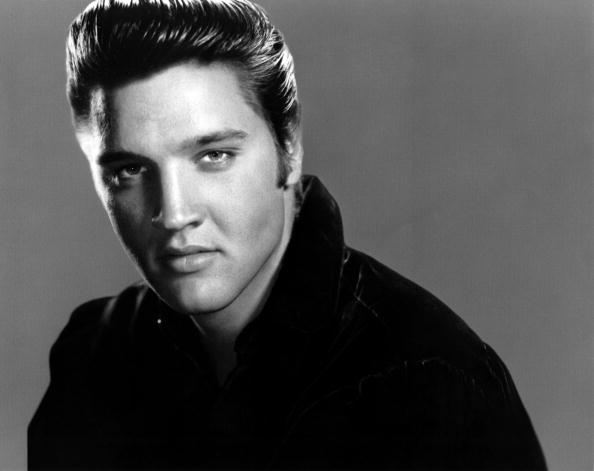
When Elvis Presley died in 1977 at the age of 42, his career was doing almost as poorly as his drug-filled personal life. Presley’s recorded output had been reduced to an assortment of live albums, second-string picks from years-old studio sessions, and newer recordings he couldn’t be bothered to leave the house to make. Rock ‘n’ roll, which at the time was busy exploring lysergic prog landscapes, considered him a relic—and while he toured constantly, his live show had become a schlocky, Vegas-style revue aimed at the middle-aged crowd who’d first latched onto him as teenyboppers decades before. While Elvis also maintained fan bases in the often overlapping realms of country and gospel, the pop world was pretty much done with him.
Today would have been Elvis’s 80th birthday, and the occasion’s being celebrated in the expected ways—with reissues, a new website, and a ceremony being live-streamed from Graceland. And while it’s harder than ever to hear Elvis’s music on the radio, as oldies stations have gradually shifted their focus onto the Beatles-era stuff that appeals to younger Boomers, the King’s spirit still pervades pop music as thoroughly as it ever has. Here are five reasons why Elvis still matters.
He was youth culture’s first real star
When “That’s All Right” became a sensation in 1954, the “teenager” as a distinct identity was a new concept, born from the booming postwar middle class—and Elvis was among the first pop acts to seize a sizable share of the burgeoning electronic media off the strength of his appeal to the youth demographic and their parents’ furious opposition to his antics. The scheme not only worked for Elvis, but for hundreds of pop stars since who’ve followed his playbook. With his ability to inspire the allegiance of mobs of screaming, high-school-aged fans and looks of complete confusion in anyone old enough to rent a car (not to mention the power-weilding manager behind him), Justin Bieber is basically a modern-day Elvis, minus the old school Southern manners.
He wrote the book on rock stardom
Sure, rock ‘n’ roll had a lot of flashy characters before Elvis came along—but when combined, his effectively limitless wealth and his refusal to be bound by the rules of good taste pushed the bar for extravagance through the roof. His fearless sartorial statements–the gold suit, the leather suit, the jumpsuits–laid the foundation for the otherworldliness of rock stars to come, and his private jet collection puts the splashiest rappers and EDM DJs to shame.
He’s one of pop’s all-time great cultural appropriators
In a recent interview, Iggy Azalea claimed that Elvis never received the kind of scrutiny she has for being a white artist working in a black music style—which is patently untrue. People were talking about Elvis’s frequently unacknowledged debt to black artists well before Chuck D put him on blast, and with the discussion of cultural appropriation louder than it’s been in decades it’s worth keeping his example in mind.
He influenced everybody
Elvis may not have invented rock ‘n’ roll, but his playbook is the one that countless pop artists that came after him have cribbed from. His influence runs everywhere throughout pop, from Dylan to Britney Spears and beyond. Just check out this chart Spotify made to illustrate it.
His music still holds up
Sure, not all of it. Much of his catalog—maybe even most of it—is made up of unbelievably uninspired stuff he recorded on autopilot. But on the occasions where he got his head in the game–his ’68 comeback special and the following year’s From Elvis in Memphis in particular–he was untouchable.
More Must-Reads From TIME
- The 100 Most Influential People of 2024
- The Revolution of Yulia Navalnaya
- 6 Compliments That Land Every Time
- What's the Deal With the Bitcoin Halving?
- If You're Dating Right Now , You're Brave: Column
- The AI That Could Heal a Divided Internet
- Fallout Is a Brilliant Model for the Future of Video Game Adaptations
- Want Weekly Recs on What to Watch, Read, and More? Sign Up for Worth Your Time
Contact us at letters@time.com